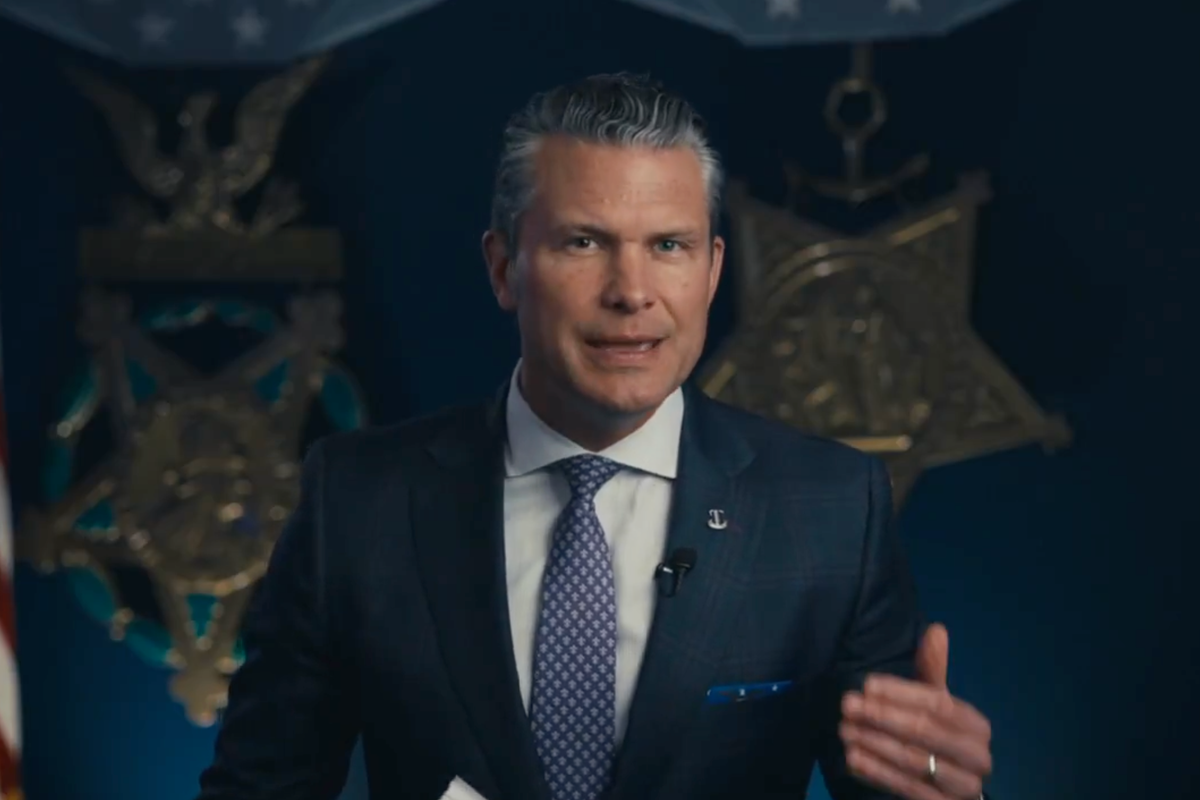
Secretary of War Pete Hegseth has ruled that U.S. Army soldiers who were awarded the Medal of Honor for their part in the Battle of Wounded Knee on December 29, 1890, will be allowed to keep them.
In a video posted to X Thursday, the secretary explained that Joe Biden’s administration established a special review panel to determine whether the combatants should have been rewarded for their part in the shoot-out, otherwise known as the Wounded Knee Massacre, in which as many as 375 Lakota men, wome,n and children were killed or injured, according to a 1990 Senate resolution.
Twenty-five U.S. Army troops were also killed, and another 39 were wounded. Nineteen people were subsequently awarded America’s highest military honor for their role in the bloodshed in South Dakota.
The Biden panel recommended in October 2024 that the medals should stand, but, according to Hegseth, his predecessor, then-secretary of defense Lloyd Austin, failed to act because he was “more interested in being politically correct than historically correct.”
“Such careless inaction has allowed for their distinguished recognition to remain in limbo until now,” the secretary continued. “Under my direction, we’re making it clear without hesitation that the soldiers who fought in the Battle of Wounded Knee in 1890 will keep their medals, and we’re making it clear that they deserve those medals.
“This decision is now final, and their place in our nation’s history is no longer up for debate. We salute their memory, we honor their service, and we will never forget what they did.”
Austin launched the expert panel to review the situation after the House of Representatives passed legislation to revoke the medals in July 2022 as an amendment to a 2023 defense policy fiscal bill.
The move was led by Hawaii Democratic Rep. Kaiali’i Kahele, who dubbed it the “Remove the Stain Act” and said in a statement at the time: “We must remind ourselves of the uncomfortable truth that this land – the United States – was taken from indigenous peoples.
“Although we can never undo the irreparable damage inflicted on indigenous peoples, we can do our best to respect their lands, empower our communities, and acknowledge the truth behind our shared history.”
The act was and ultimately referred to the Senate Committee on Armed Services but was revived this May by Democratic Sens. Elizabeth Warren and Jeff Merkley, with the former saying: “We cannot be a country that celebrates and rewards horrifying acts of violence against Native people.
“Congress must recognize how shameful this massacre was and take an important step toward justice for the Lakota people.”
Congress issued a formal apology to Native Americans over the massacre in 1990 on the 100th anniversary of its occurrence, but stopped short of rescinding the medals.
The events of that infamous day came about as troops from Colonel James W Forsyth’s 7th Cavalry and accompanying artillery units were confiscating weapons from a Lakota Sioux encampment on the Pine Ridge Indian Reservation.
A struggle suddenly erupted after a deaf man, Black Coyote, who may not have heard or understood the instructions given to him by the soldiers, refused to give up his arms, prompting a chaotic gunfight to break out in which the indigenous people under Spotted Elk were hugely outnumbered.
Hundreds died in the melee, with some of the U.S. troops involved thought to have been brought down by friendly fire.
